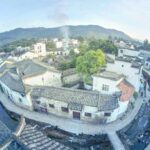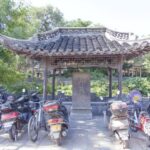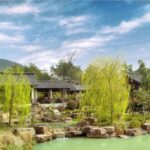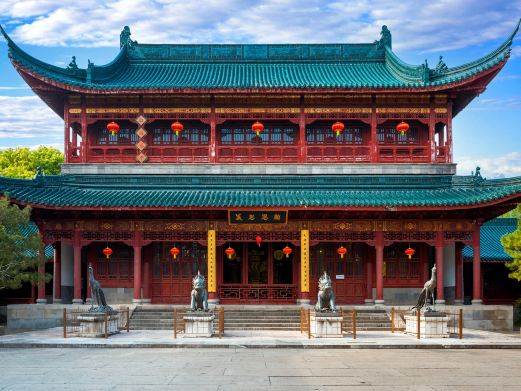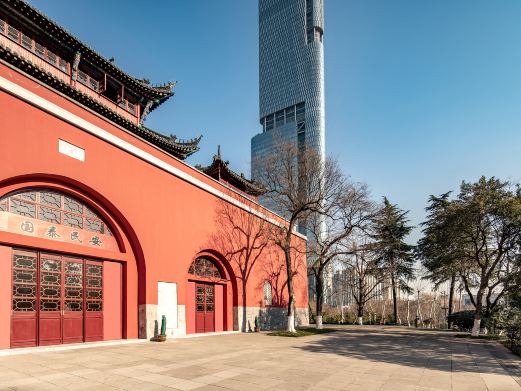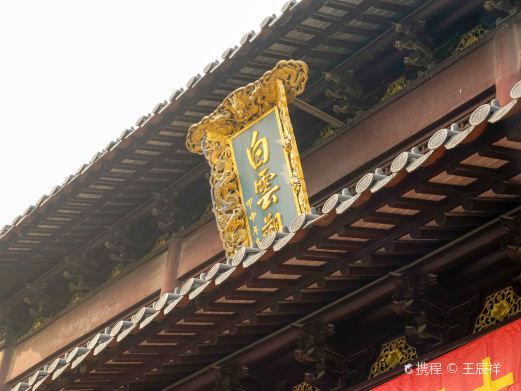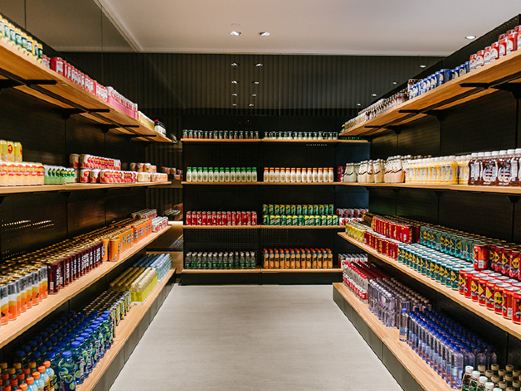Jigong’s Former Residence is located in Yongning Village, outside the North Gate of Tiantai Ancient City in Zhejiang, at the head of the stone wall. It is the birthplace of the ‘Living Buddha’ Jigong and a historical and cultural city attraction in Zhejiang Province. The scenic area is composed of three main parts: the double-archway at the entrance of Yongning Village, the Guanxia Pavilion, Jigong Li’s ancestral home, and Longxi Garden. The current residence, a reconstruction, presents a scroll filled with the atmosphere of the Southern Song Dynasty, embodying the architectural style of Eastern Zhejiang and the layout of a scholar-official’s residence.
Jigong Li’s ancestral home is a building in the Southern Song Dynasty’s Eastern Zhejiang ‘three-depth nine-bright hall’ style, the place of Jigong’s birth and growth. The residence includes a hall, bedrooms, a study, a Buddhist hall, and an ancestral hall. The internal furnishings and displays of antique furniture, portraits, pictures, and research materials related to Jigong’s life and studies recreate the living conditions of the Jigong Li family during the Southern Song Dynasty, deepening people’s understanding of the historical Jigong. Longxi Garden, the private garden of the Jigong Li residence, features a pond, a waterside pavilion, the Diaoyue Pavilion, the Zuixian Building, a promenade, and Jigong’s pharmacy. The Jigong Buddha Hall within the garden houses a jade statue of Jigong, with a back screen of Nanmu wood carvings of the five hundred arhats, serving as a place for the public to worship. Opening hours are from 07:30 to 17:00 all year round. Preferential policies include free admission for children under 1.2 meters (inclusive) and those under 6 years old (inclusive), half-price for children, students, and the elderly: children between 1.2 meters (exclusive) and 1.5 meters (inclusive), full-time undergraduate students (inclusive) and below with their student ID, and people over 60 years old (inclusive) with their ID. Free admission for active-duty military personnel with a military ID, and for disabled persons with a disability certificate. Blood donors, teachers, and talents with a Zhejiang Province unpaid blood donation honor certificate, a 30-year teaching honor certificate, and a Taizhou City talent service card are also free. Additional notes: The above information is for reference only, and the actual policies are subject to disclosure by the scenic area. Jigong, also known as Li Xiuyuan (or Xiuyuan, Xinyuan), was born in the Southern Song Dynasty and was a descendant of Li Zunxu, the son-in-law of Emperor Zhenzong of Song. The Li family served in official positions for generations, known for their integrity and devotion to Buddhism, making them a prominent family in Taizhou. Jigong grew up by the Zha Stream and studied at Chicheng Mountain. In his youth, he joined the Buddhist order, first entering Guoqing Temple, receiving full ordination at Lingyin Temple by West Lake, and later moving to Jingci Temple. Known for his pure nature and eccentric yet unworldly behavior, he helped the distressed and suppressed evil while promoting good, leaving behind a legacy of poetry, calligraphy, and extraordinary deeds that echoed throughout the land, earning him the title ‘Jidun’.Jigong’s Former Residence
Jigong’s Former Residence is located in Yongning Village, outside the North Gate of Tiantai An[...]

